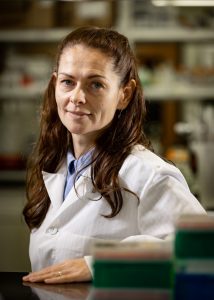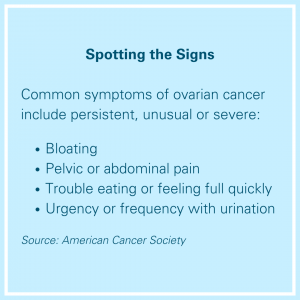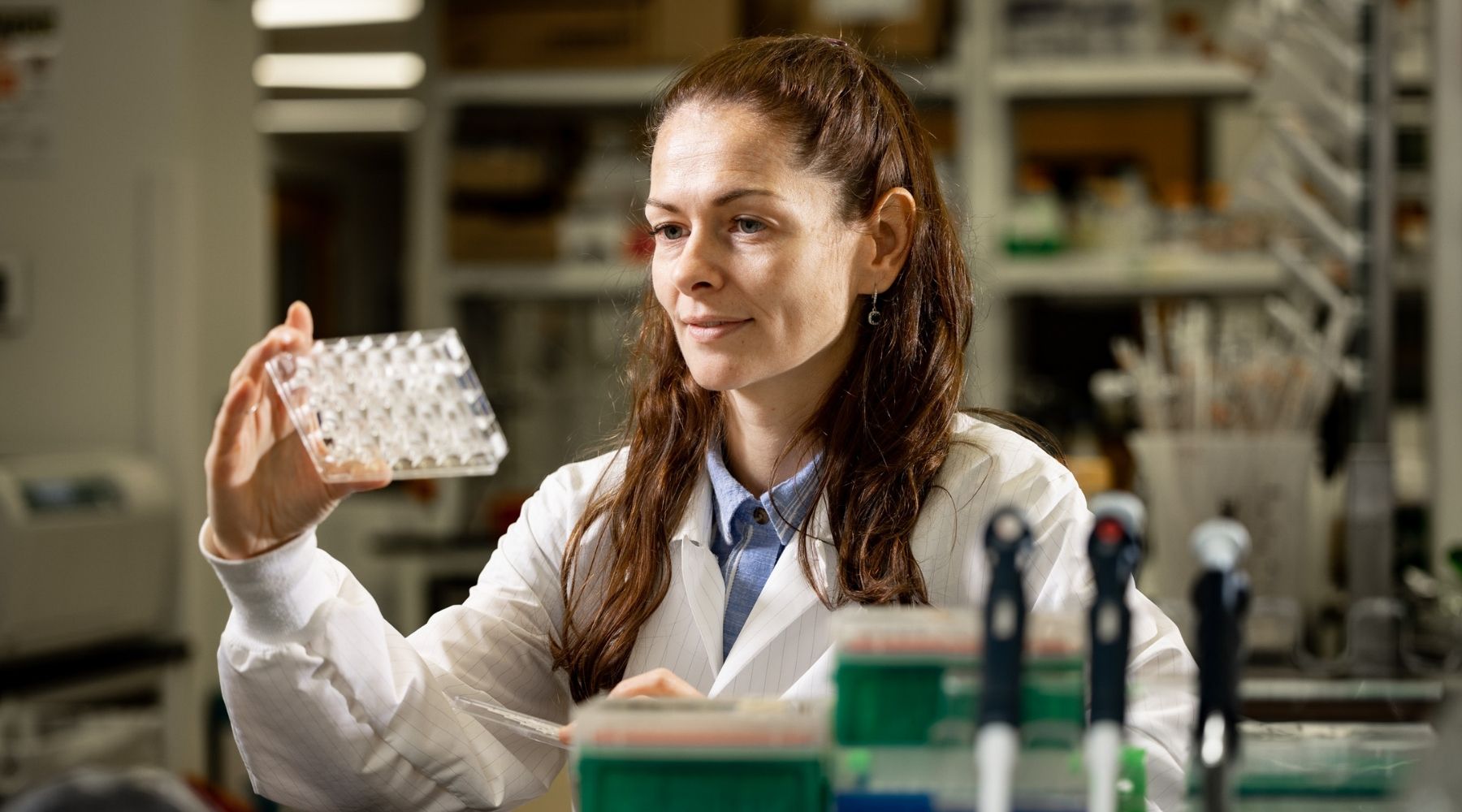If there’s one thing Dr. Magdalena Bieniasz is sure of, it’s that no two cancers are exactly alike.

“Once you classify a tumor, there are subtypes,” Bieniasz says. “And every person responds to treatments differently. There’s no one solution.”
Since joining OMRF from Utah’s Huntsman Cancer Institute in 2014, Bieniasz has studied high-grade serous ovarian cancer. It totals nearly 70% of cases of the disease and is frequently resistant to chemotherapy.
“When you start with general therapy, the sensitive cancer cells will die,” Bieniasz says. “But resistant cancer cells remain.” To combat this, Bieniasz is focusing on precision treatment techniques customized for a person’s unique disease.
“In targeted therapy, drugs are matched to specific tumors. We characterize samples so we know which tumor is a good candidate for each treatment,” she says.
This personalized approach recently earned Bieniasz a two-year grant from the National Cancer Institute. The funding will enable her to test innovative combinations of drugs to kill cancer cells and inhibit new tumor growth.
She’ll do the work in partnership with the University of Oklahoma Health Stephenson Cancer Center. With the consent of patients, OU Health physicians will provide samples of ovarian tumors to Bieniasz’s lab, where she’ll test the therapies in preclinical models.
“There are other ways to do research, but I always like to be closer to the patient,” Bieniasz says. “Working with real patient tumors is the best way to test precision medicine methods.”
As a scientist in OMRF’s Aging & Metabolism Research Program, Bieniasz acknowledges her focus on cancer may sound a bit out of place. But Dr. Holly Van Remmen, who leads the program and holds the G.T. Blankenship Chair in Aging Research, doesn’t think so.

“Aging is the biggest risk factor for many diseases, including cancer,” says Van Remmen, noting the average age for ovarian cancer diagnosis is 62. Although many institutions segregate their approaches to studying cancer and aging, OMRF has mapped a different course. Bieniasz collaborates with several scientists more focused on traditional “aging” questions, expanding her research to study how metabolism impacts ovarian cancer. “Science is a team sport. Dr. Bieniasz is the perfect example of what can happen when you have new collaborators,” Van Remmen says.
While Bieniasz is optimistic about the future of personalized medicine for ovarian cancer, she says early detection remains critical in the fight against the disease that claims the lives of nearly 14,000 American women each year. According to the American Cancer Society, in addition to age, risk factors for ovarian cancer include obesity, having a first full-term pregnancy after age 35 or never having children, specific hormone therapies taken after menopause, and a family history of ovarian, breast or colon cancer.
“Research is advancing. There are better and faster methods to diagnose and treat patients,” Bieniasz says. “That isn’t helpful unless women see their doctor when they think something might be wrong. Too many wait until it’s too late.”
—
Read more from the Winter/Spring 2022 issue of Findings
Family Matters
Lessons in Philanthropy
Go East, Young Man
Life Changer
How Yellowstone’s hot springs paved the way for DNA testing
Voices: Nancy Yoch
Strange Things



